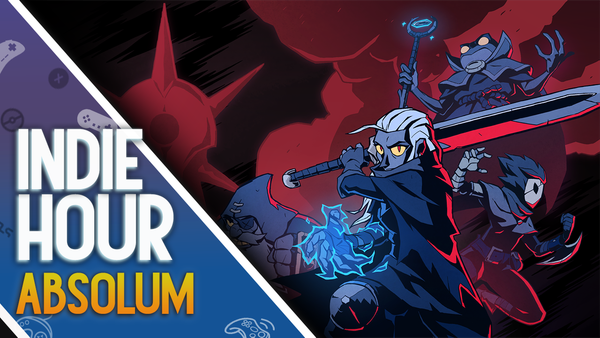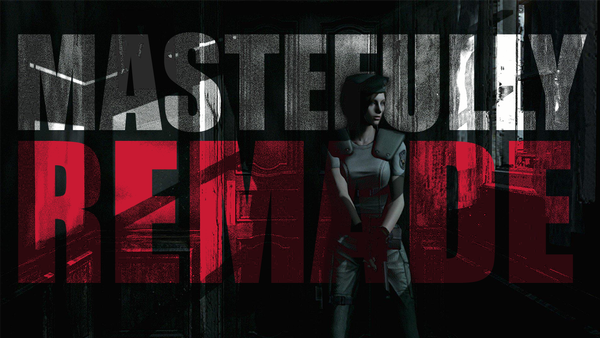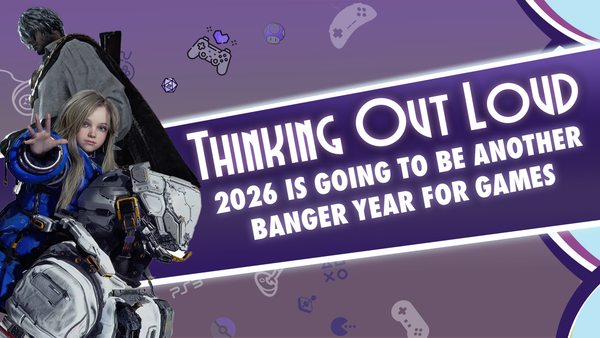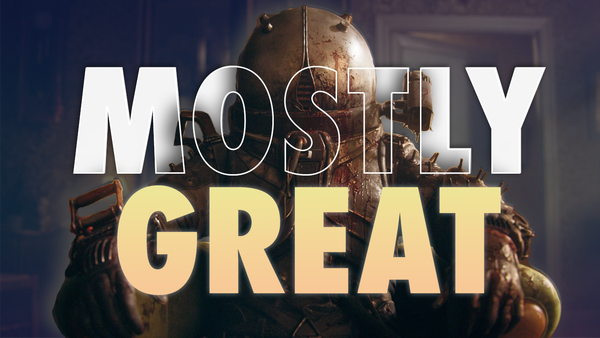How Balatro Became The MOST Addictive Game of 2024
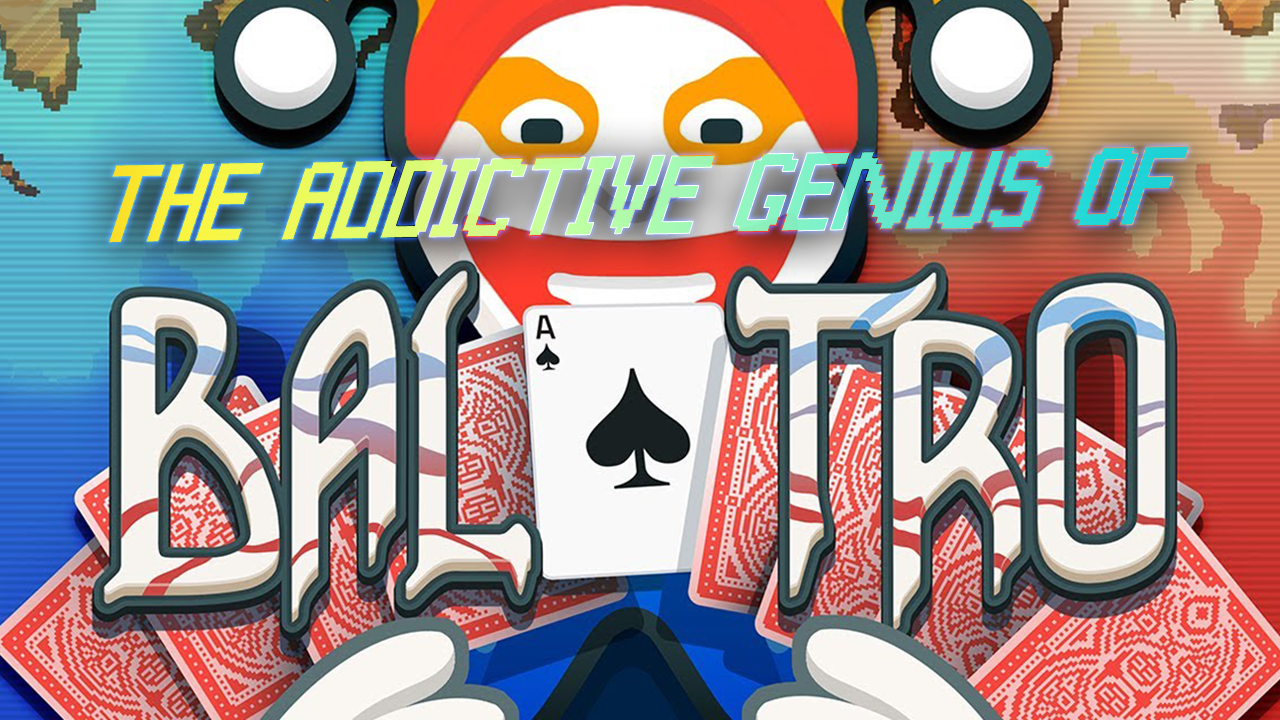
Table of Contents
Introduction
If there is one thing that I can say for sure about 2024 it is that there were a fair few card games that released and sunk their claws into people, milking time, productivity and money. However, there is one that I believe stands above the rest in the time it takes from you, the thrills you will seek playing it, the intense nature of this roguelike that is a...CARD GAME?!
Balatro is one of the most addictive games to release in 2024 and one the best games too, as the recent nominations at the Game Awards would suggest, this flew under the radar for many and was only my backlog for a few months before totally sinking its claws into, sapping my time, productivity and making me the closest thing to a poker addict that I would ever imagine being.
Simply put Balatro is a work of genius that has combined the addictive thrill chasing highs and wins of poker with rouge like elements that see you trying to deck build, maximize the returns on your different hands, and up your overall multiplier to get that extra hit of dopamine needed, and take that ante to the next level. In this review I want to talk about why you should try Balatro and what makes it, so god damn addictive.
The Addiction in Incomplete Information Games
The Jolt
In poker there is a science towards enticing a player to sit down and keep playing. There phenomenon represented through sudden change the jerk (jolt) is a compelling phenomenon a human feels towards a practical application.
There has always been a sense of the jerk that has been found in different forms of games we play whether it is strategical like chess or challenging like a video game. However the feeling of a jerk is deeply heightened when we're confronted with what care called "incomplete information games". Card games such as poker fall under this umbrella of a card game that plays off the use of incomplete information and players often had a tendency to repeat playing the game
The Three Levels of Thrill
So games like poker reward us with dopamine, the pleasure responses when we win or believe we have a possibility or winning, then when entering a blind we have a bunch of choices and bias that play on our incomplete information, some that can lead us to negative behaviors such as an illusion of control, reinforced mechanisms of learnings, and a fallacy known as the gamblers fallacy, which posits that we will make a decision based on the likelihood of an action happening more or less based on previous events, when in reality each instance is isolated and should be treated individually. The third and final loop that plays into this is the way that these outcomes and how we play has an impact on our cognition going forward, more particularly our cognitive control system, which is a region of our brain that allows us to direct behaviors and our ability to control how we control our thinking, behavior, impulses, and emotions.
Game Playtime vs Game Satisfaction
The following graph is used to indicate the amount the amount the length of a game contrasted to the the overall game satisfaction of a game. The graph specifies that their are different types of games and that shorter games tend to rely more on chance and aren't as reliant on strategy. Then there are games like Chess or Soccer providing a fair balance between complexity and surprise. Then finally there are long games like Go or Shogi which offer deep and rewarding outcomes attracting players who enjoy the prolonged engagement and complexity of a game. The graph also indicates that the level of attractiveness and surprise of play increases when the game becomes more difficult, however the reinforcement to play drops with the difficulty of the game, meaning that the motivation to continually participate in said game drops the more complex or strategic the game is.
So what the hell does all of this have to do with a deck-building rogue-like?
The Gameplay Loop
Overview
Balatro's gameplay loop is genius rooted in the traditions of Poker, but defined and continuously shapeshifting by its roguelike elements that turn a card game that is both based on probability and mind games, more intensified. Where the feeling of the jolt comes from an incomplete round of poker and what cards will be played or dealt, there is that same experience in Balatro's moment to moment rounds which resemble aspects of poker, but also through how the games rogue-like elements are incorporated.
But Balatro's not poker, it's something different. So what is Balatro? Balatro is a game that has you playing poker hands to score points. As each round passes you're thrown into rounds where you need to accumulate more points. These rounds are called blinds. But in between these rounds of Poker there is a window of rest in the shop where you can deck build, open packs that improve the point output of different poker hands and reward you with different jester cards known as Jimbos who fundamentally alter the rules and work to your advantage. There are two things you have to worry about in Balatro. Your overall points, and your mult, which is your multiplier. Finding ways to increase these two variables consistently will reward you with a higher point payout and this is where the core tenants of Balatro are established, but more on that later.
Jimbo
How Balatro accomplishes this is through any poker decks wildcard, the joker. Jimbo our infamous jester that makes an appearance on the cover art of Balatro and is in many ways our wildcard, see between each round of balatro, you are able to purchase new card packs, some of which are for these cards called Jimbo cards, which are like a permanent effect that is in play for as long as you hold onto them. The player can hold up to 5 of these and sell ones they no longer require, and purchase new ones. It makes each run of Balatro feel like you're trying to get a particular flow established, trying to work with the best Jimbo cards that you have available and factor those into the way you achieve this. An example of a Jimbo card could be increasing the multiplier when you play a pair or when you play a hand that has the suit of hearts. These effects, give us a sense of agency control, and the multiplier, let's talk about the multiplier.
The Jolt in Balatro
The jolt or the jerk in Balatro comes from the feeling of getting that hand and seeing that multiplier fire off on all cylinders, and it makes us want to keep going forward upping the ante and believing that we have the winning formula to conquer the game of Balatro. But here's the thing, Balatro is clever in its design, much like poker in providing a false sense of security, making you think you have the game figured out, until you release that the house too, can punch back with different abilities that make rounds known as the big blind harder to conquer with effects like "not being able to play spades" or "each score each round being half". It's at these moments when Balatro builds you up on a high, before kicking your ass, and having you do it all again.
But with the completion of each run, you unlock new Jimbo cards that could appear, new decks with different abilities, and much much more that despite failing to best the game still rewards you, gives you the jolt, and throws you into the fray again.
The Hidden Outcome
Balatro tells the player the amount of points they'll amass per card that is counted when playing a hand. However, Balatro will never inform the player of the culmination of points that they'd score playing that particular hand.
This is what I call The Hidden Outcome, and it's another part of the jolt in full force, and is when Balatro taps into this concept. It is the anticipation, the dopamine, the sense of unpredictability waiting to see the points rack up, and the multiplier increase, and if you're doing insanely well, you'll get this cool fire effect around your points and multiplier score.
This is the highs, of Balatro's loops that arrive from the Jimbo's you select, the cards you add to your deck, and the arcana cards that boose your overall returns of the respective poker hands you play. All of these buffs and builds contributing the tipping the scales, providing an element of strategy and clarity the the hidden outcome would reveal itself, in our favour.
Balatro is Two Games
So earlier in the video when we looked at the graph that explored Game Playtime to Game Satisfaction where we looked at how different games are able to engage different players, with game complexity and surprise increasing the attractiveness of a game, but with more complexity the motivation to re-engage and continually play is reduced.
Balatro is Genius, because it is two games at once. It is both short-term, AND long term. It provides a short-term level of attraction and surprise a gambling game offers in its round to round blinds you play, but also plays out over the course of a multi-levelled collection of blinds that increase in difficulty and require a level of strategy in how you optimize your deck, and the Jimbo cards that you choose to define each particular run.
The short rounds of each blind are a game within themselves the short-term game that provides thrills and surprise with unpredictability and incomplete information, that derives itself from poker. The longer game, is Balatro the round to round run and deck crafting that makes up the all encompassing experience that defines and is Balatro.
Balatro is a largely satisfying and rewarding experience, and the further we progress in this game, the more the chips are stacked against us, it requires us to think and strategize, it calls upon our past previous rest points between blinds where the player is able to build out a playstyle and level of strategy, this in turn increases Balatro's overall satisfaction and pushes into the realm of surprise of play, due to our actions. So enhancements we have made to out poker hands, deck-build, and Jimbos acquired, give us a more complex approach to the game, and this here is where the second game Balatro comes into its own, and cements itself between the short form rounds that imitate poker, but utilize the fruits of your long form plan.
The last and final piece that should be taken form this section of the video is the two games that make up Balatro, the convergence. The moment when the short satisfying rounds, thread themselves together through the roguelike deck-builder elements that serve as rest points fleshing out the broader long game at play. Each of these two different components thread together well making an experience that can be long and complex, and require a level of luck, but also familiarity with Balatro's quirky external mechanics. The moment you win, the highest level of satisfaction is achieved, and when you are defeated, you're motivated to give it another try, because of the short rounds of each blind.
Conclusion
Balatro is a stroke of genius walking a tightrope playing on the psychology of incomplete card games to hook you in for the short term, and coupling this with a clever spin of the rogue-like and deck-building genre that keeps you engaged, and learning for the long term. Balatro's unpredictability, from round to round is exciting, keeping you motivated and locked-in with every short term win, and take those winnings to further flesh out your deck, poker hands, and Joker card, in the attempts to rack enough points to conquer the game of Balatro. The short answer is yes, Balatro is undeniably fun and once you get into a rhythm you'll be addicted and won't be able to stop. It's no surprise that this was nominated for the Game of the Year, and honestly Balatro is nothing short of genius and a game that I absolutely recommend you check out.
Resources
**What Makes an Addictive Card Game?
https://ieeexplore.ieee.org/stamp/stamp.jsp?tp=&arnumber=9999431
https://www.newswise.com/articles/scientists-explain-why-card-games-are-so-addictive#:~:text=Short%2C repeatable rounds%2C chances%2C,motion-in-mind model
https://books.google.com.au/books?hl=en&lr=&id=BbW_DUV-pP4C&oi=fnd&pg=PA33&dq=what+makes+an+addictive+card+game&ots=_-R6uQ0Ssh&sig=PLGMy5mKwgb4Hk5A14K2kUFsE90#v=onepage&q=what makes an addictive card game&f=false

